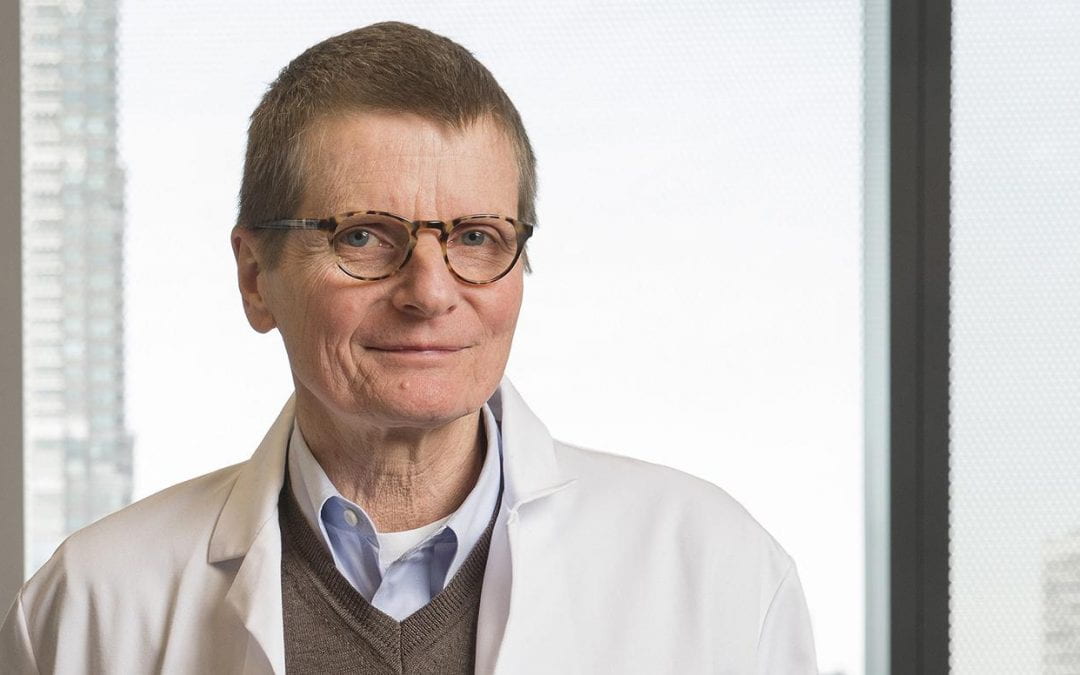
Jul 31, 2019 | Food Allergies, Microbiome
A selection of health news from the University of Chicago and around the globe curated just for you.
How the microbiome influences drug action
Through their effects on metabolism and immunity, bacteria in the gut affect whether medications will be effective for a given patient. Tom Gajewski featured. (The Scientist)
A groundbreaking study is good news for cats—and people
UChicago researchers studying the cat-poop parasite, Toxoplasma gondii, made a breakthrough that will spare a lot of felines from research. Rima McLeod featured. (The Atlantic)
UChicago cancer startup gets $22 million
The immunotherapy company, based on the research of UChicago’s Tom Gajewski, will be run from Boston. (Crain’s Chicago Business)
Can gut bacteria heal food allergies?
Recent scientific work suggests that food allergies have spiked in the past few decades because environmental changes have wiped out the gut bacteria needed for coping with allergens. Cathryn Nagler featured. (Elemental by Medium)
Graphene and germ combo paves way for futuristic tech
Researchers have created a method to produce graphene materials using a novel technique: mixing oxidized graphite with bacteria. (Futurity)

Jun 17, 2019 | Microbiome
by Elise Wachspress
Recent research shows that the average age of death for those past 65 continues to increase steadily, by about 3 years over each generation (25 years). This is good news if you are over 65, but even better news if you are still in diapers—you can probably expect to add another 8 or 9 years to current life expectancy, once you make it to age 65.
Ah, the pessimists will say, but does that only mean more years of physical decline, progressive frailty, cognitive impairment?
Maybe not. The Duchossois Family Institute was founded on the idea that scientific research can help us live not only longer lives, but healthier, more vibrant lives.
Eugene Chang, MD, and Sebastian Pott, PhD, have laid out a research plan to see how the microbiome might make old(er) age healthier and more vital. They note that the gut microbiome—the largest organ in the human body—has been implicated in health problems (diabetes, autism, autoimmune diseases) known to strike in youth or middle age. But there has been little study of how the microbiome affects the aging process, and vice versa.
The few studies that have been done seem to show older people have a less diverse microbial population living in their guts. What causes this? Diet, environmental factors, lifestyle? Already a team of scientists at UChicago has demonstrated that the microbiome is likely a factor in Alzheimer’s disease, and they are working to better understand the mechanisms involved. But what about aging itself?
Because studying the microbiome in humans presents significant technical and ethical problems, Chang and Pott want to investigate these connections in that standard model of laboratory discovery, the mouse.
Using young and old mice of the same strain, living in the same kind of environment, the team will first examine the actual cells in the guts of each. They will look for any differences in the genes active in these cells and corresponding “epigenetic” changes—changes caused by differences in the chemical groups attached to the DNA molecules. These added chemical groups can sometimes act as on/off switches, activating or de-activating particular proteins and genes, with significant effects on how the biochemistry in a person’s body plays out.
Pott has special expertise in “single-cell genomics;” he can analyze large numbers of individual cells at once. Single-cell technology can assess the epigenetic changes in each particular cell, rather than the “average” across a whole population of cells, helping the team identify differences between young and old mice and obtain a “molecular age” of cells, even if they are measurable only in some cells.
Next, the team will compare fecal samples from young and old mice to monitor the differences in the bacteria in the guts of each. They will then transplant the fecal samples into germ-free mice and see how the microbial communities harvested from young and old mouse-donors affect the health of their new hosts.
In the third experiment, they will use gut cells from young and old mice to grow organoids— three-dimensional, multi-cellular tissues that mimic the mouse’s actual gut tissue. The team can then assess the differences between tissue grown from young and old mice, how these tissues differ from those grown in actual mice, and how microbial components affect the apparent age of the cells in these cultures.
The team is looking for funding for this early-stage, high-risk, high-reward project, the kind that rarely receives funding from the National Institutes of Health. But what they learn can provide many insights into how aging affects and is affected by the microbes we carry in our bodies—and open up whole new areas of preventive medicine.
Chang and Pott hope their work will help make the extra three years we are gaining in every generation full of energy and vigor.
Elise Wachspress is a senior communications strategist for the University of Chicago Medicine & Biological Sciences Development office

Jun 11, 2019 | Microbiome, Transplantation
by Stephanie Folk
In December 2018, doctors at UChicago Medicine set a new record. Over the course of two-and-half days, they completed not one, but two triple-organ transplants, replacing the failing hearts, livers, and kidneys of two 29-year old patients. It was the first time any US hospital had ever performed more than one of these incredibly complex surgeries within a single year—let alone within two-and-half days.
These remarkable, back-to-back surgeries made national news, and the donated organs will give the recipients new leases on life. But the story doesn’t end there. What happens after the surgery rarely makes the news—but it’s critical to the well-being of the patients. The next challenge is to keep the transplanted organs alive and functioning in their new and immunologically hostile environment. It’s a delicate balancing act that requires keeping peace between the donated organs and the recipient’s immune system. This is where scientists like Anita Chong, PhD, come in.
Chong is working to improve transplant success by creating better, more targeted therapies that keep the body from rejecting and eventually destroying the new organs.
The immune system sees new organs as intruders and unleashes an army of immune cells and an arsenal of secreted antibodies trying to kill the “invaders.” Transplant specialists try to reduce the intensity of the assault by matching organ donors with recipients who are as genetically similar as possible. A better match means fewer differences to trigger the body’s defenses.
“But unless you get organs from your identical twin, your immune system will recognize that this organ is something that is ‘non-self,'” Dr. Chong said.
This means that nearly all transplant patients need to take drugs to suppress the immune system, medications which are costly and can cause serious side effects.
“So the problem is maintaining a good quality of life as well as maintaining the graft,” Dr. Chong said. “If you take a lot of drugs, your body will not reject the graft. Ultimately, if you eliminate your immune system completely, you will never reject your graft. But that’s not compatible with normal living. And the higher your dose, the more side effects you will have with the drugs,” she said.
Researchers like Chong are working on ways to prevent rejection with fewer drugs. She and her colleagues are focused on an approach to essentially “turn off” only the parts of the immune system specific to the transplant reaction while maintaining the immune system’s ability to fight disease.
Creating this type of targeted treatment requires the ability to diagnose which of the many mechanisms of the immune system are attacking the transplant and then developing therapies that stop this process.
One of Chong’s projects focuses on preventing rejection driven by antibodies. These Y-shaped proteins circulate in the blood plasma and other bodily fluids to neutralize targets such as bacteria, and viruses. But antibodies can also attack transplanted tissue. In mouse models, Chong and colleagues identified a drug combination that can prevent antibody production and treat rejection.
Chong and colleagues also conducted a pilot study that involved using drugs that target antibody-producing white blood cells to treat six patients who were rejecting transplants. The drugs reduced the production of the antibodies damaging the graft. The transplanted organs were saved, and the health of the patients improved. Chong is now working with colleagues at the University of Chicago to conduct pilot studies to treat patients who have antibodies that prevent them from receiving organ transplants. If successful, this work will allow patients who have been waiting for many years to successfully receive organ transplants.
These and other research projects led by Chong and others at UChicago could lead to groundbreaking treatments that would help transplant patients live longer, healthier lives. In a future post, we will look at the work of Chong’s colleague, Maria-Luisa Algere, MD, PhD, who is investigating some surprising connections between transplant success and diet, exercise, and the microbiome.
Photo caption: Triple-organ transplant recipients, Sarah McPharlin and Daru Smith. Ben Bitton/UChicago Medicine.
Stephanie Folk is a senior assistant director of development communications for the University of Chicago Medicine & Biological Sciences Development office.

May 29, 2019 | Microbiome, Neuroscience, News Roundup
A selection of health news from the University of Chicago and around the globe curated just for you.
Improving care for young hearts
Ivan Moskowitz is investigating the genetic causes of pediatric congenital heart disease (CHD) in an effort to improve diagnosis and treatment of children born with this condition. A recent gift from The Heart of a Child Foundation will help support his research. (Give to Medicine)
Antibiotic treatment alleviates Alzheimer’s disease symptoms in male mice
Researchers at the University of Chicago have demonstrated that the type of bacteria living in the gut can influence the development of Alzheimer’s disease symptoms in mice. Sangram Sisodia featured. (UChicago Medicine)
Addressing social needs and structural inequities to reduce health disparities
“Entering Asian American and Pacific Islander Heritage Month, a cutting-edge issue is addressing social determinants of health, which are especially critical among diverse Asian American ethnic groups that vary in education, income, and acculturation,” writes UChicago Medicine’s Marshall Chin. (NIMHD Insights)
Phage therapy to prevent cholera infections—and possibly those caused by other deadly bacteria
Discovered a little more than 100 years ago, bacteriophages, or phages, are generating renewed interest as potential weapons to fight bacteria that are resistant to multiple antibiotics. (The Conversation)
Common food additive found to affect gut microbiota
Experts call for better regulation of a common additive in foods and medicine, as research reveals it can impact the gut microbiota and contribute to inflammation in the colon, which could trigger diseases such as inflammatory bowel diseases and colorectal cancer. (ScienceDaily)

Apr 30, 2019 | Cancer, Microbiome, News Roundup
A selection of health news from the University of Chicago and around the globe curated just for you.
Providing a community of support for young women
The region’s first pediatric lupus clinic opens at Comer Children’s Hospital thanks to the generosity of the Handley family and Lakeshore Recycling Systems. The clinic aims to help adolescents manage the physical and psychosocial challenges of living with lupus. Melissa Tesher featured. (Give to Medicine)
Drug delivery technique makes cancer immunotherapy more effective
Researchers in the Institute for Molecular Engineering at the UChicago have developed a new way to target immunotherapies and deliver them directly to tumors, helping to both reduce side effects and make the therapies more effective in treating cancer. Jeffery Hubbell and Melody Swartz featured. (UChicago Medicine)
Your sexual partners can change your microbiome, a new study in mice finds
People’s sexual partners could impact both their gut microbiome and their immune system, according to a new study from the University of Colorado, Denver. (STAT)
Gut microbiome directs immune system to fight cancer
Researchers identified a cocktail of 11 bacterial strains that activated the immune system and slowed the growth of melanoma in mice. Thomas Gajewski quoted. (Drug Target Review)
The Microbiome Center continues its focus on the broader world of microbes
Co-director Cathy Pfister, PhD, says the resources and research infrastructure being developed by the DFI are a tremendous boon for all researchers studying the microbiome at UChicago. The DFI’s emphasis on human health also allows the Microbiome Center to focus its efforts across many environments. (UChicago Medicine)

Apr 29, 2019 | Microbiome
Following a national search, renowned physician-scientist Eric G. Pamer, MD, has been recruited to be the inaugural faculty director of the Duchossois Family Institute at the University of Chicago Medicine starting July 1.
Formerly with Memorial Sloan Kettering Cancer Center, Pamer will lead the Duchossois Family Institute as it seeks to carry out groundbreaking research on how the human immune system, microbiome and genetics may interact to maintain health. He will work closely with faculty, students and staff across the University of Chicago and UChicago Medicine to develop directions for research at the institute, to recruit outstanding faculty and to establish an innovative infrastructure that promotes discovery and translation.
The news comes nearly two years after UChicago Medicine announced the largest gift in its history to establish the Duchossois Family Institute: Harnessing the Microbiome and Immunity for Human Health. The institute is dedicated to investigating and developing new knowledge about the human biological defense systems, including the microbiome, and their therapeutic and commercial potential for preventing disease and maintaining lifelong wellness. The $100 million gift, announced in May 2017, was from Duchossois Group Inc. Chairman and CEO and longtime University and Medical Center Trustee Craig Duchossois, his wife, Janet Duchossois, and The Duchossois Family Foundation.
“We are delighted by the recruitment of Dr. Pamer, as it speaks to UChicago’s continued record of attracting the best minds who can take on great challenges,” said Kenneth S. Polonsky, executive vice president for medical affairs at the University of Chicago. “Under his leadership, the Duchossois Family Institute will leverage the university’s and medical center’s strengths and resources in the fields of genomics, the human immune system, data analytics and the microbiome to develop novel approaches to enhancing the body’s natural ability to maintain health and prevent disease.”
Pamer is an infectious diseases expert who specializes in immune defense against infections associated with cancer treatment and an accomplished scientist whose research focuses on the microbiome’s impact on resistance to a wide range of microbial pathogens. He comes to Chicago from Memorial Sloan Kettering Cancer Center in New York City, where he has served as head of the Division of Subspecialty Medicine since 2011 and director of the Lucille Castori Center for Microbes, Inflammation and Cancer since 2010. He joined Memorial Sloan Kettering in 2000 as chief of infectious diseases and has served as professor of medicine at Weill Cornell Medicine since 2001. Prior to his tenure in New York, he worked at Yale University from 1992 to 2000 as an assistant and associate professor of infectious diseases and immunobiology.
“My laboratory has been studying how to optimize the body’s immune defenses against a range of infections,” Pamer said. “Recent technical and computational advances have enabled us to investigate the role that commensal bacteria living on our surfaces and in the intestine play in defense against infections and in the pathogenesis of inflammatory diseases. We need to exploit these fundamental biological discoveries to advance the emerging field of health optimization and to identify how these insights can be applied, both clinically and commercially. I look forward to collaborating with researchers and clinician-scientists to tackle those challenges.”
Board certified in internal medicine and infectious diseases, Pamer is a member of the National Institute of Allergy and Infectious Diseases’ Board of Scientific Counselors and of the Bill and Melinda Gates Foundation’s Global Health Scientific Advisory Committee. He has published over 200 articles and book chapters. He received his medical degree from Case Western Reserve University and completed his residency and clinical fellowship at the University of California, San Diego.
Story originally appeared on The Forefront by UChicago Medicine









